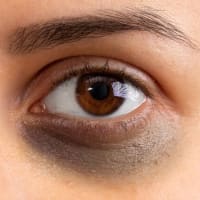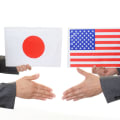私 「ねえ、ダリちゃん。よくある日本人の勘違い英語ってどんなの?」
ダリちゃん 「あなたの英語!」
私 「……」「had betterなんか、日本人がよく使う、アメリカ人がカチンとくる言葉と思うけど? つまり、学校では『~した方がいいよ』って優しく控えめに人に何かを勧めるときの言葉みたいな風に習ったけど、実際は『~しなかったらひどい目に会うよ』という感じのフレーズみたいだけど……」
ダリちゃん 「わしは、had betterというフレーズは必ずしも悪いとは思わないね。使う場面によるね。had betterがいいことも時々あるよ。忠告する時なんかね。でも人に何か勧めたいときなんかは、why don’t you (~してはどうですか?)がよりよいフレーズだと思うよ」
I don’t necessarily think that the phrase “had better” is bad. It depends on the situation. Sometimes “had better” is good, if it is used as a warning. But if your intention is to recommend something to a person, then “why don’t you” is a better phrase.
私 「他に何かある?」
ダリちゃん 「さあ。見当つかないなあ」
私 「……」「よく『ナイーブ』は日本語では『ピュアーな』や『無垢な』という意味で使っているけど、これって英語ではちょっと違うって聞いたことがあるけど、実際どうなの?」
ダリちゃん 「naiveという言葉が、よく日本人に間違って使われてるって? 基本的にね、naiveとinnocentは同じ意味だけど。どちらも経験がほとんどないという感じだね。でもね、naiveには悪い響き、innocentにはいい響きがあるね。時にほとんど経験がないことはいいことで、望ましいこともある。『彼女はinnocentだ』というと『彼女は純粋でいい女の子』っていう感じがするね。それに対して、 naiveは基本的に『間抜け』と言う意味だね」
Is the word, “naive” frequently mistakenly used by Japanese people? Basically, “naive” and “innocent” are the same meaning. Both have a feeling of very little experience. However, “naive” has a bad connotation, while “innocent” sounds like a good quality. Sometimes, little experience is good and very desirable. When you say that “she is very innocent,” it seems likely that she is a pure and good girl. On the contrary, “naive” basically means ‘stupid.’
私 「よーくわかった」
ダリちゃん 「今度はわしのオリジナルな例ね。同じような意味だけど片方はいい意味、もう片方は悪い意味の例。childishとchildlikeの例。どっちも、子供っぽいっていう意味だけど、childishはとても侮辱的で悪い意味合いがある。人に対して使うと、子供の悪いところをいくつか兼ね備えているということになる。一方『彼はchildlikeな気質がある』というと子供のような純粋さがあるという意味になる」
Here is my own example, where a pair of words that have similar meaning, but one word has a good connotation, while another has a bad connotation. The example is childish vs. childlike. You know, basically, both have the same meaning. But childish is very insulting and has a bad connotation. If this is applied to a person, it means that the person has one or more of the bad qualities of a child. On the other hand, if I say that he has very childlike disposition, it means that he has one of the good qualities of a child.
私 「さすが! ダリちゃん。やっぱり凄い! 他に何か言いたいことある?」
ダリちゃん 「これまでは、語彙の問題だった。次は使い方の問題。例を挙げるね。よく日本人がOK, OK, OK, OK.っていうよね。この言い方ってどう感じる? 英語的にはこれは悪い表現だ。実際、英語ネイティブには『もうわかったよ! もういいよ!』って聞こえる。とっても無礼だね」
So far, we were talking about examples in respect to vocabulary. Next example concerns usage. Sometimes a Japanese person says, “OK, OK, OK, OK.” How do you feel about this expression? In English, it’s a bad meaning. The actual meaning for native speakers may be like, “I got it already! That’s enough!” It’s very rude.
私 「僕も結構OK, OK, OK.って言ってるけどね。ダリちゃんなぜ今まで黙っていたのさ!」
ダリちゃん 「わしが小規模の英会話スクールで働いていた時、生徒らに英文法を教えていたんだが、わしは『要点、つかめた?』って聞いたんだ。そうすると生徒の一人が『あー、OK, OK, OK, OK』と言ったんだ。日本人同士の間ではよく使われる言葉だが、実際、英語ネイティブの耳には『わかったよ。もういいよ! うるさいよ!』と聞こえる」
When I worked at a small English language school, I was teaching English grammar to students. I said, “Did you understand the point?” And one of the students says, “Ah, OK, OK, OK, OK.” This seems to be a common refrain among Japanese, but actually, for native English speakers, that means, “Noted, that’s enough! Just shut up about it already!”
私 「じゃあ、何回までならオーケーを連発してもオーケーなの?」
ダリちゃん 「2回でも感心できないね。一度で十分。わしは思うに、生徒が本当は、多分次のように言いたかったんじゃないかなと思う。『はい、はい、はい、はい、あーそうだったのか』と。とにかく、OK, OK.は良くないね」
Even to say it twice is unadvised; one time is enough. I think, in my feeling, what the student actually intended to say was probably like that: “HAI, HAI, HAI, HAI, ah, I see.” Anyway, “OK, OK.” is bad.
私 「へー、OKが2回続くだけでダメなんだ」
ダリちゃん 「文法用語で『命令形』というのを知っているよね。日本語を英語に訳すとき命令形はすべてpleaseとなるね。でもそれは奇妙だね。例えばアメリカ人の友人がペンを忘れたとする。あなたは、Please use mine.(私のを使ってください)というかもしれない。でもこの場合、このような使い方は変だね。もし、あなたが彼に手を差し伸べたいならpleaseはしばしば、ほとんど上から目線ということになる。つまり『私が正しくて、あなたは間違っている。助けてあげているんだ。間抜けなくせに。あれを使うんじゃない。これを使うんだよ』と。誰かに頼みごとをするときはpleaseはいい選択だね。例えば『氷をください』など。でもね、誰かに何かをしてあげるときは、pleaseを使うのは不自然だね」
You know the grammatical expression called the “imperative form.” Japanese translate into English every kind of imperative form as “please.” However, this would be strange here. Imagine that your American friend forgot his pen. You might say, “Please use mine.” However, this would be strange here. If you are helping him, “please” is often almost condescending. This means that “I’m right and you are wrong. I’m helping you. You are stupid. Don’t use that. Use this!” When you ask someone a favor, then “please” is a good choice to use, like, “Please give me ice.” However, if you’re giving someone something, using “please” is unnatural.
私 「pleaseでほかに気を付けなければいけないことってある?」
ダリちゃん 「そうだなあ。広告の場面でいい例がある。新しい歯磨き粉を広告するとする。まだ誰も使ったことはない。この場合、pleaseとは絶対言わない。商品に自信があるなら、絶対言わない。じゃあ、なんと言うと思う?」
Oh, yes. Here is a good example in the advertising situation. Imagine that you are advertising new toothpaste. Nobody has used it yet. In this case, we never say “please.” If you have confidence in the product, never! Then, what are you supposed to say?
私 「Why don’t you use it? なんてどう?」
ダリちゃん 「わかってないねえ。こういう時はTry it.っていうんだよ。pleaseは、とても弱腰に聞こえて自信のない印象を与えるね。『どうか助けてください。お金が必要なんです。トラブルを抱えてるんです。誰も買ってくれないんです』みたいにね」
No! I would say, “Try it.” “Please” sounds very weak, which gives the image of no confidence. If you say, “Please, buy it,” it is like saying, “Please help us. We need money. We have problems. Nobody buys it.”
私 「ふ~ん」
ダリちゃん 「もし人に何かをあげるとき、pleaseは絶対使わないね。pleaseは何か欲しい時に使うんだよ。日本語の『どうぞ』はよく英語でpleaseと訳されてるけど。でもね、もし自分が人に何かを与えるときは『どうぞ』をpleaseに訳すことは完全に間違ってるね。こういう時はHere.やHere you are.やTake this.という言葉を使うんだよ」
If we want to give somebody something, we would never use “please.” We say “please” if we want something. The Japanese word douzo is often translated into “please” in English. However, if we want to give somebody something, this translation is totally incorrect. In this case, you should say, “Here,” “Here you are,” or “Take this.”
私 「pleaseを付ければ何でも丁寧語になると思っていた」
ダリちゃん 「わしが初めて日本に来た時、だいぶ前のことになるけど、日本語英語の変さを体感したことがある。通りにティッシュを配る男の子がいてね、わしを見て『あ、ガイジンだ! ティッシュ、プリーズ』と言うんだよね。わしは『いーよー。このティッシュでどこ拭いてほしいの?』って思った。つまり、pleaseの使い方は、180度間違ってる」
I first realized the weirdness of Japanese English many years ago, when I came to Japan for the first time. There was a tissue boy in the street, and he sees me and says, “Tissue, please.” My feeling is that, “Ok, what do you want me to wipe with the tissue?” So, this usage is 180-degree opposite of its correct usage.
私 「ティッシューボーイでなくてもpleaseを使ってしまいそう。指摘してくれてどうもありがとう」
ダリちゃん 「さらに日本人は時々、アクションに対してもpleaseを使うね。エレベーターの場面で、あなたと、一人のアメリカ人がエレベーターを降りようとしていて、あなたが、礼儀正しく振る舞いたい時、あなたはその見知らぬ人にpleaseというかもしれない。でもこの場合のpleaseの使い方は間違い。この場合は、礼儀正しく、After you.(お先にどうぞ)というべき」
Also, Japanese people sometimes mistakenly use “please” in respect to action. In an elevator, where you and an American are getting off the elevator and you want to behave politely, you may say to the person, “Please.” However, the usage of ‘please’ in this situation is wrong. You should say politely, “After you.”
キーワード
intention: 意図、意思
connotation: 言外の意味、含意
contrary: 反対の、~に反する
insulting: 侮辱的な、無礼な
disposition: 気質、習性
imperative form: 命令形
refrain: 繰り返すこと、畳句
condescending: 威張った、相手を見下すような
confidence: 自信、確信
コメント
丁寧語のつもりでpleaseをつけたつもりが「上から目線」な言葉になるなんて、びっくりした。気を付けなければと感じさせられた一幕であった。




















